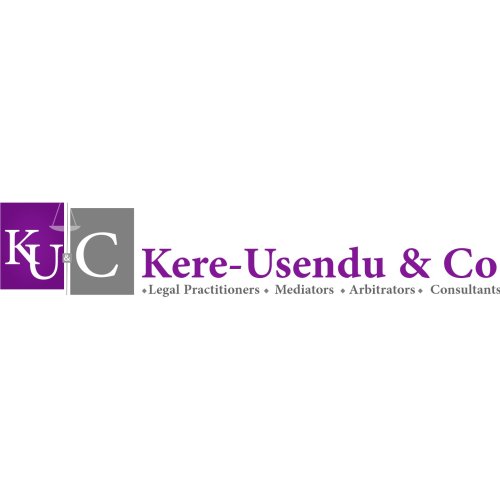Best Foreclosure Lawyers in Jos
Share your needs with us, get contacted by law firms.
Free. Takes 2 min.
Free Guide to Hiring a Real Estate Lawyer
List of the best lawyers in Jos, Nigeria
About Foreclosure Law in Jos, Nigeria
Foreclosure law in Nigeria, including Jos, is stipulated under the Mortgage Institutions Act 1989, Banks and Other Financial Institutions Act (BOFIA) 1991, and the Nigeria Mortgage Refinance Company Act, 2014. These laws allow a lender to repossess and sell a property when a borrower fails to fulfill the obligations indicated in their mortgage agreement. Before a foreclosure can take place, certain processes and notifications must be in place to ensure the rights of the borrower are protected.
Why You May Need a Lawyer
Foreclosure issues can be complex. Misunderstandings about repayment terms, arrears, or your rights as a property owner can lead to foreclosure. Lawyers proficient in foreclosure laws can provide crucial advice, help you understand your rights and options, and guide you in taking the necessary actions to prevent or contest foreclosure. Also, if you are wrongfully foreclosed upon, or if correct processes are not followed, a lawyer can help you reclaim your rights or get redress.
Local Laws Overview
The initial step in a Nigerian foreclosure process involves the lender issuing a demand letter to the defaulter in accordance with the Mortgage Institutions Act and the Banks and Other Financial Institutions Act. If the defaulter fails to respond to the demand letter and pay the outstanding amounts within the stipulated time, the mortgagee can proceed to apply for court order of foreclosure. The property can then be legally resold to recover the debt. Note that lawyers must be involved at nearly every step of this process.
Frequently Asked Questions
What can I do to avoid foreclosure?
In cases of financial hardship, quick communication with your lender can be instrumental in avoiding foreclosure. You can negotiate for a loan modification, repayment plan or refinancing. Remember to engage a lawyer to guide you through this process.
What happens after foreclosure?
Upon foreclosure, you lose ownership of your property. The lender assumes the rights to your property and can arrange a sale to recoup their losses.
Can I reclaim my property after foreclosure?
Reclaiming a property after foreclosure is difficult, but in some specific cases where due process was not followed, you may have a chance. Contact a foreclosure lawyer for expert advice on reclaiming a house after foreclosure.
What is the foreclosure process in Jos?
The process begins with a notice or demand letter from the lender due to default. If the borrower fails to pay, the lender may apply for a court order for foreclosure. With the court order, they can sell the property to recover the debt.
Who can help me understand foreclosure proceedings?
Foreclosure lawyers or specific Non-Governmental Organizations (NGOs) can provide assistance in understanding foreclosure proceedings in Nigeria. It is advisable to engage with a lawyer for personalized advice.
Additional Resources
Several governmental bodies, law firms, and NGOs like Nigeria Mortgage Refinance Company (NMRC), Legal Aid Council of Nigeria, and the Nigerian Institute of Advanced Legal Studies (NIALS) offer resources and advice on foreclosure matters.
Next Steps
If you anticipate a foreclosure problem or are already facing one, get in touch with a local foreclosure lawyer as soon as possible. They can inform you about local laws and regulations, your legal rights, and the options available to you.
Lawzana helps you find the best lawyers and law firms in Jos through a curated and pre-screened list of qualified legal professionals. Our platform offers rankings and detailed profiles of attorneys and law firms, allowing you to compare based on practice areas, including Foreclosure, experience, and client feedback.
Each profile includes a description of the firm's areas of practice, client reviews, team members and partners, year of establishment, spoken languages, office locations, contact information, social media presence, and any published articles or resources. Most firms on our platform speak English and are experienced in both local and international legal matters.
Get a quote from top-rated law firms in Jos, Nigeria — quickly, securely, and without unnecessary hassle.
Disclaimer:
The information provided on this page is for general informational purposes only and does not constitute legal advice. While we strive to ensure the accuracy and relevance of the content, legal information may change over time, and interpretations of the law can vary. You should always consult with a qualified legal professional for advice specific to your situation.
We disclaim all liability for actions taken or not taken based on the content of this page. If you believe any information is incorrect or outdated, please contact us, and we will review and update it where appropriate.









